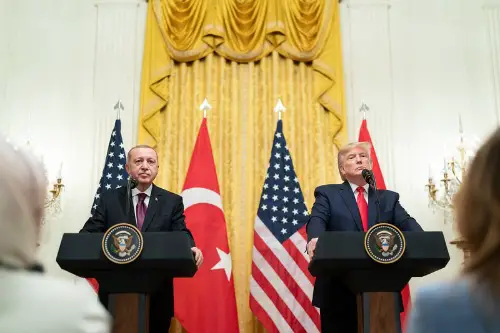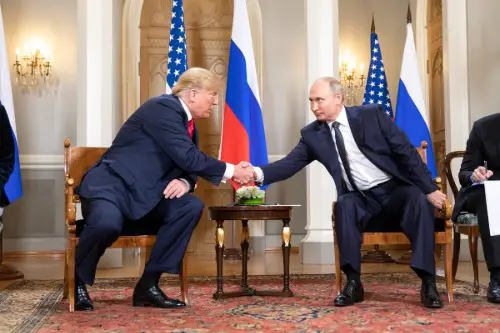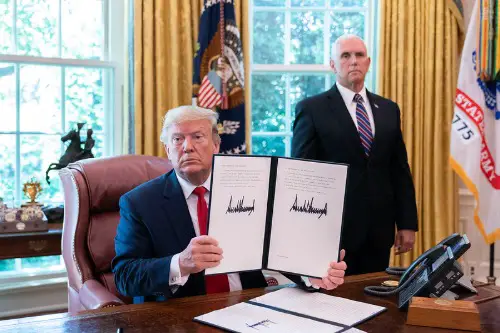1. European Union’s Tariffs on U.S. Bourbon

In response to U.S. tariffs on steel and aluminum in 2018, the EU hit back with targeted tariffs of its own. One of the most symbolic targets was American bourbon. Europe is a key export market for whiskey producers in Kentucky, and this tariff was deliberately aimed at Senate Majority Leader Mitch McConnell’s home state. It was a calculated response meant to be both economic and political.
The EU made no secret of its strategy: hit politically sensitive U.S. industries. Sales of American whiskey in Europe dropped, and distilleries felt the impact almost immediately. Some producers even considered moving parts of their operations abroad. It’s a prime example of trade wars getting personal.
2. China’s Retaliation on U.S. Soybeans

When the U.S. imposed tariffs on Chinese goods in 2018, China struck back by targeting American agriculture, especially soybeans. China was the largest buyer of U.S. soybeans, and this move hit American farmers hard. The boycott wasn’t official in name but came in the form of huge tariffs, making U.S. soybeans too expensive. Imports from Brazil and Argentina surged in response.
Farmers in the Midwest felt the squeeze almost immediately, with stockpiles piling up and prices falling. This action was clearly intended to apply pressure on one of Trump’s key political bases. It led to billions in emergency subsidies for U.S. farmers. The trade war showed just how quickly a foreign boycott can hit home.
3. India’s Boycott on U.S. Apples and Almonds

In 2019, India raised tariffs on 28 U.S. products, including apples, almonds, and walnuts. This was a direct response to the U.S. ending India’s preferential trade status under the Generalized System of Preferences. India had long been a top market for American almonds, especially from California. The tariffs made U.S. nuts far less competitive compared to local and Australian varieties.
This wasn’t just about nuts and fruit—it was about national pride and economic sovereignty. Indian traders and buyers took to social media encouraging people to “go local” in protest. The boycott had an economic bite and symbolic resonance. The U.S.-India trade relationship still hasn’t fully bounced back.
4. Turkey’s Pushback on American Electronics

After U.S. sanctions on Turkey over the detention of an American pastor, Turkish President Erdoğan fired back. In 2018, he called on citizens to boycott U.S.-made electronics, specifically naming the iPhone. His government actively promoted Turkish alternatives like the Vestel Venus smartphone. This was more of a consumer-based push than an official embargo.
The campaign was full of nationalist overtones, encouraging Turks to support local products over American imports. While the economic impact was limited, the message was loud and clear. Anti-American sentiment surged in Turkish media during this period. The boycott was more symbolic than practical, but it highlighted deep tensions.
5. Russia’s Ban on U.S. Agricultural Products

Back in 2014, following U.S. sanctions over the annexation of Crimea, Russia hit back hard. The Kremlin banned a wide range of agricultural imports from the U.S., including meat, dairy, and produce. This wasn’t a temporary slap on the wrist—it was a sweeping, long-term policy shift. It forced Russia to invest more heavily in domestic agriculture.
American exporters lost a significant market almost overnight. The move also pushed Russia to deepen its trade relationships with countries like Brazil and China. The ban remains largely in place, years later. It’s one of the more enduring examples of a political spat becoming economic policy.
6. Mexico’s Tariffs on U.S. Pork

Mexico, the largest foreign buyer of American pork, wasn’t going to take U.S. steel tariffs lying down. In 2018, it slapped tariffs on U.S. pork legs and shoulders, targeting a key agricultural export. The move was strategic: pork is a multibillion-dollar industry and heavily concentrated in politically important states. These tariffs disrupted supply chains and forced producers to scramble.
Mexico turned to alternative suppliers like the EU and Brazil. Some American pork producers saw a double-digit drop in export volumes. While the U.S. later lifted the steel tariffs, the damage was done. This was a clear example of trade war blowback.
7. Canadian Push to Avoid U.S. Goods

When the Trump administration levied tariffs on Canadian steel and aluminum, Canadians were both puzzled and angry. The reaction wasn’t just diplomatic—it was grassroots. Social media campaigns urged Canadians to buy local and avoid American-made goods. Hashtags like #BuyCanadian and #BoycottUSA gained traction quickly.
Some businesses even posted signs saying they didn’t carry U.S. products. The movement, while informal, reflected a deep sense of betrayal. The idea that Canada could be considered a security threat didn’t sit well. Though short-lived, the boycott left a mark on cross-border consumer trust.
8. Iran’s Permanent Blacklist of U.S. Goods

Iran has long banned American products due to decades of political hostility. But in 2016, following the brief thaw under the nuclear deal, some U.S. goods began appearing quietly in markets. That changed when the U.S. withdrew from the deal in 2018 and reimposed sanctions. Iran swiftly doubled down, reinforcing its complete boycott of American imports.
Officials even destroyed U.S.-made goods on camera for TV broadcasts. Though symbolic, these actions reinforced a hardline stance. Iranian consumers turned to European, Chinese, and domestic alternatives. It’s one of the most enduring and ideological boycotts on the list.
9. Pakistan’s Informal Tech Boycott

After a series of U.S. drone strikes and political tensions, anti-American sentiment surged in Pakistan. In various protest movements, there were calls to boycott U.S. tech and software products. While never officially endorsed by the government, student groups and political organizations organized grassroots campaigns. Tech forums buzzed with recommendations for alternatives to American software and platforms.
This kind of boycott was less about trade volume and more about symbolism. Calls to switch from Microsoft to open-source tools or avoid U.S.-based platforms became common. Though the actual impact on American tech firms was minimal, the message resonated. It was a cultural protest more than an economic one.
10. Indonesia’s Push Against U.S. Wheat

In 2020, Indonesia signaled its discontent with U.S. agricultural policy by cutting back on wheat imports. The U.S. had begun pulling out of key trade agreements and tightening food safety rules that affected Indonesian exporters. As a counter, Indonesia started favoring Australian and Canadian wheat instead. Local officials cited price and reliability, but the timing spoke volumes.
American wheat sales to Indonesia fell noticeably that year. The move aligned with broader Southeast Asian frustration with U.S. trade unpredictability. It wasn’t a flashy boycott, but a quiet pivot. Sometimes trade protest looks like polite substitution.
11. South Africa’s Anti-GMO Stance

South Africa has had intermittent tensions with the U.S. over genetically modified crops. In 2013 and again in 2018, activist groups and trade regulators pushed to block U.S. grain imports over GMO concerns. This has functioned as a kind of food-based boycott, often influenced by domestic politics and public pressure. U.S. exporters had to navigate complex regulations and shifting approval lists.
American corn and soy shipments were often delayed or rejected. South Africa looked to Brazil and Argentina for alternatives. These disputes also played into larger debates over food sovereignty and biotech. It’s a low-key but persistent challenge to U.S. agricultural dominance.
12. Japan’s Cooling on U.S. Beef

Japan has a long, complicated history with American beef, dating back to the 2003 mad cow disease scare. Though it lifted the ban in stages, every new round of trade friction reawakens skepticism. During the 2018 trade tensions, Japanese media and consumer groups reignited calls to avoid U.S. beef. Supermarkets responded by promoting domestic wagyu and Australian alternatives.
Imports dipped slightly as consumer preferences shifted. The boycott talk didn’t dominate headlines, but it simmered quietly. For American ranchers, Japan is a top-tier market, so even minor drops matter. It’s a case of an old grievance that never quite fades.
This post 12 International Boycotts Targeting the U.S. Over Trade Wars was first published on American Charm.


